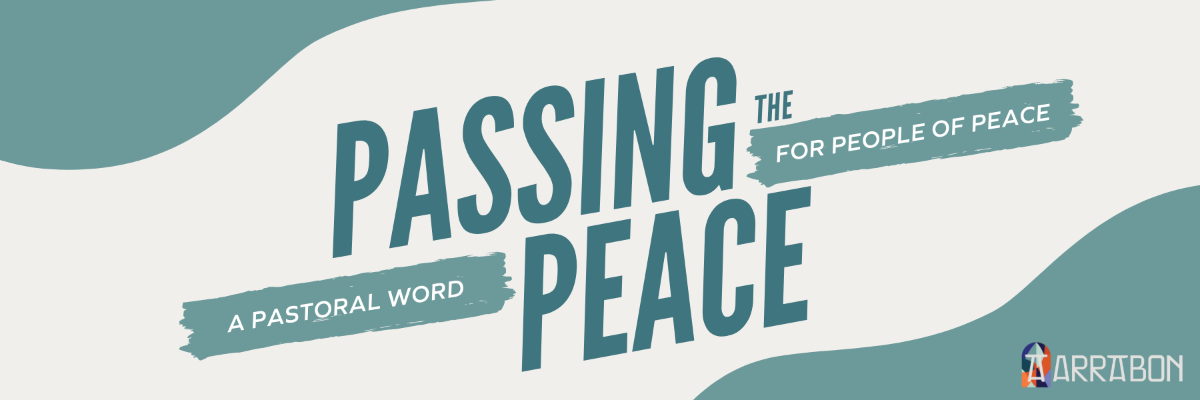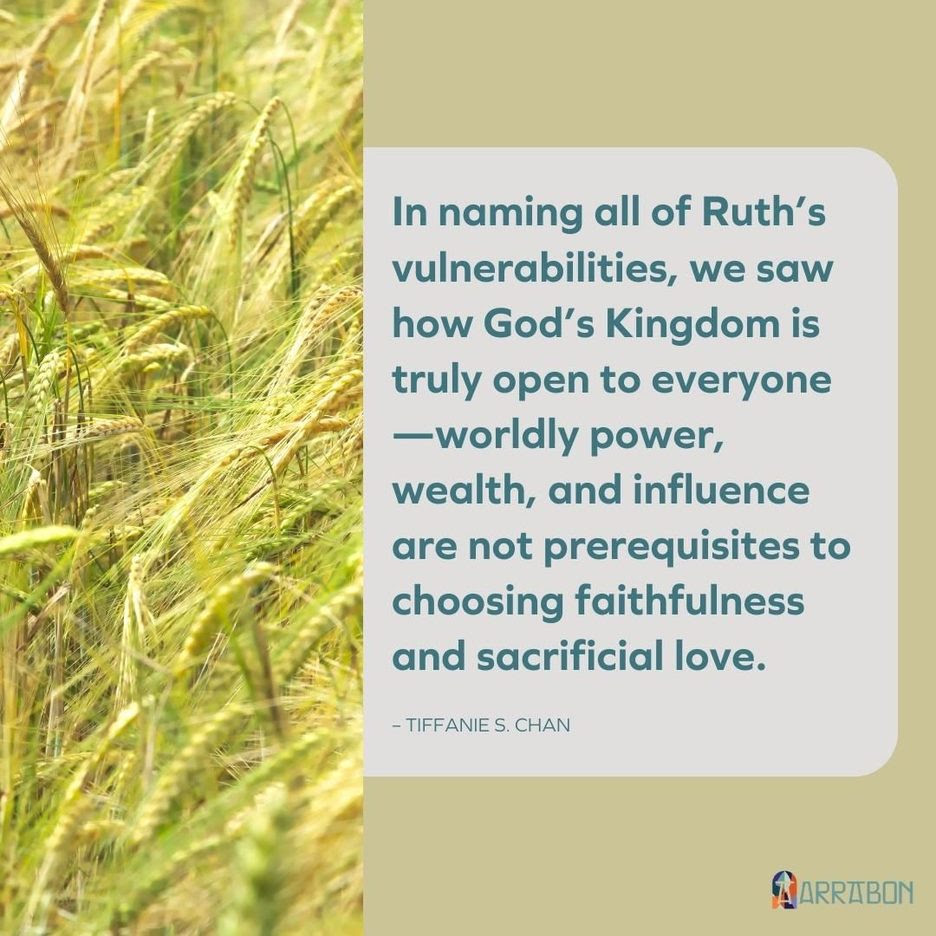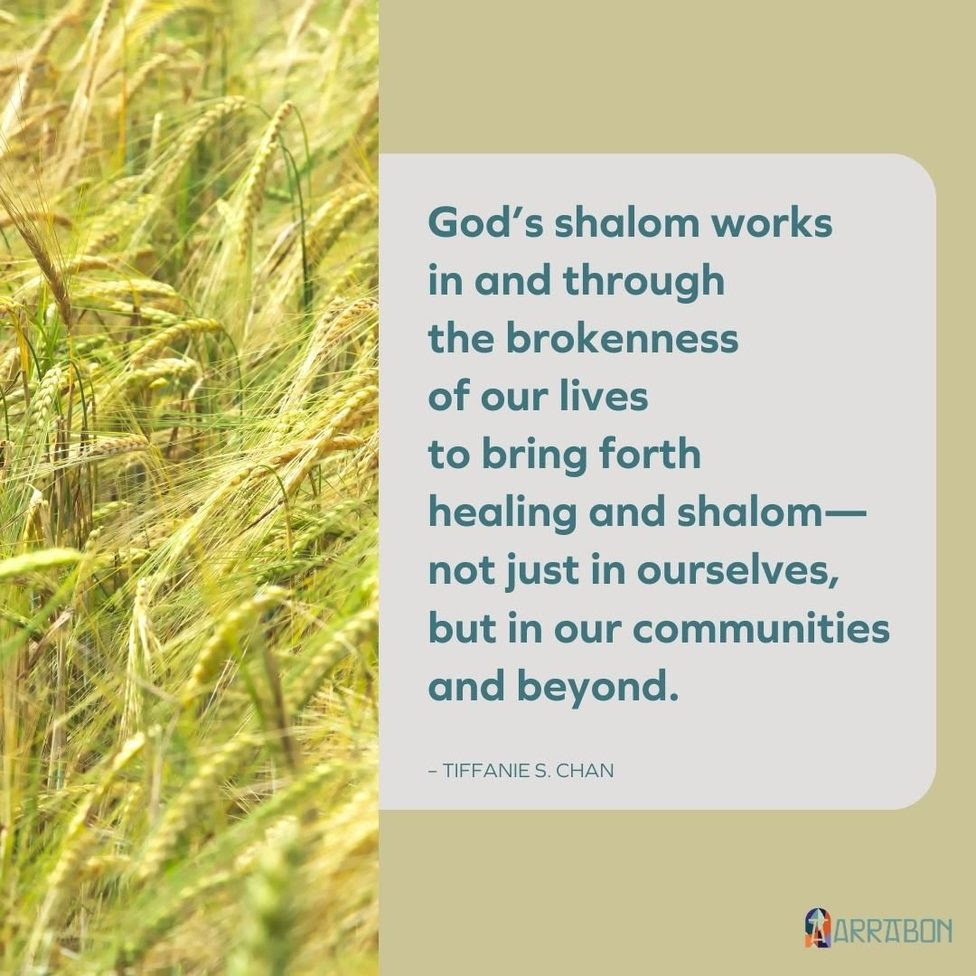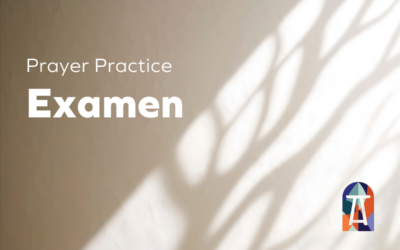Passing the Peace: In and Through the Brokenness
God uses the faithful choices from those the world considers broken, weak, and marginalized to bring about God’s Kingdom—to bring about a people who bear God’s image and likeness, in a place where God’s rule and reign is enacted, and a just society where everyone is cared for holistically.

![]() 5 minutes
5 minutes
Share this Article
|
In my work at Arrabon this past year, I’ve been privileged to nurture the retooling of our ”A People, a Place, and a Just Society” study series. It’s been such a rich experience to look closely at God’s heart for justice, shalom, and reconciliation throughout the story of Scripture. (More to come on the launch of the study series in Fall 2023.) Last week, I had the joy of sharing a portion of this study with a group of college-aged women who are spending their summer partnering with various Richmond nonprofits in their missions to serve vulnerable populations. Together we looked at the Old Testament story of Ruth—the widowed Moabite woman whose moving pledge of love and loyalty bound her to her mother-in-law Naomi and to God. |
|
The Power of the Vulnerable In naming all of Ruth’s vulnerabilities, we saw how God’s Kingdom is truly open to everyone—worldly power, wealth, and influence are not prerequisites to choosing faithfulness and sacrificial love. On the contrary, power, wealth, and influence can quickly become idols that tempt us to choose injustice instead of shalom. In fact, all we need to pursue shalom is provided for us in the gift of the Spirit. |

|
|
|
Redeeming our Complicated Stories Our discussion turned to Boaz—a man whose power, privilege, and faithfulness allowed him to step into the Levitical role of kinsman-redeemer and provide care and protection for Ruth, Naomi, and others. We esteemed his faithfulness to the just society God intended, even during a time of scarcity in the land. One of the women recalled that Rahab (Joshua 2) is recorded as Boaz’s mother in the genealogy of Jesus (Matthew 5:1). We wondered at God’s use of Rahab in Boaz’s life—his experience of being raised in a family with such a strong heroic woman who was an outsider herself, and at Boaz’s multi-ethnic background. Did God use Boaz’s multi-ethnicity, Rahab’s influence, and their family’s history of integrating outsiders to shape Boaz into someone who would notice and welcome a foreign woman in his fields? Did Boaz see and admire some of his mother’s bold heroism in Ruth’s story? Our curiosity into Boaz’s story sparked conversation into how our own complicated family stories and our relative privilege and influence can be used by God to bring shalom to our communities.
|

|
In and Through the Brokenness Ever since God created humanity, God has called us into partnership in the work of shalom. The brokenness of our lives does not preclude us from that invitation. In fact, God’s shalom works in and through the brokenness of our lives to bring forth healing and shalom—not just in ourselves, but in our communities and beyond. Ruth and Naomi’s story began in famine and grief, but the story of their redemption had already been set in motion. Years earlier, through her bold, faithful choices, Rahab’s story of sexual exploitation and survival became one of provision—not only for her immediate family’s safety and security, but also in the provision of a kinsman-redeemer who would see and save Ruth and Naomi. Together they would become the family of David’s royal line, and lead to the birth of our Savior. As those young women and I discovered anew that evening, the story of God’s shalom through the Bible is deep and rich and unending and what’s more, God graciously invites each one of us to partner in the work of shalom. In fact, God uses the faithful choices from those the world considers broken, weak, and marginalized to bring about God’s Kingdom—to bring about a people who bear God’s image and likeness, in a place where God’s rule and reign is enacted, and a just society where everyone is cared for holistically. May we have the courage and boldness to step into God’s invitation to shalom today!
|
Written by Tiffanie S. Chan. Originally published in Arrabon’s email newsletter “Passing the Peace.” Sign up for our newsletter below.
Related Reading
A Posture of Compassionate Curiosity | Passing the Peace
We hope this tool can be used to encourage reflection, integration, and humble pursuit of the Way of Jesus.Each day is filled with joys, challenges, and mundane moments. It is our hope that you have found this prayer to be a helpful way to slow down, listen and...
A Prayer of Examen for Pursuing Shalom Amidst Division | Passing the Peace
We hope this tool can be used to encourage reflection, integration, and humble pursuit of the Way of Jesus.

